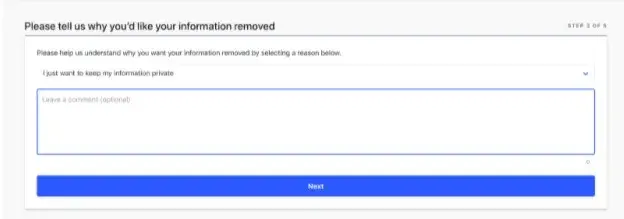What Is Doxxing and Swatting?
Laura Martisiute
Reading time: 6 minutes

Table of Contents
What is doxxing and swatting? As these two harassment and intimidation techniques become more popular, it’s essential that everyone is aware of what they entail. We’ll cover the basics of doxxing and swatting in this guide, along with how you can keep yourself safe.
What Is Doxxing?
Doxxing (also known as dropping dox or docs or doxing) occurs when someone releases your personally identifiable information – like your full name, home address, or social security number – online without your permission.
Initially, the practice was used by hackers to “out” other hackers. However, recently, doxxing has become common among average internet users.
Part of what makes doxxing so easy is the amount of personal information that’s available about most Americans on the internet.
Although doxxers can buy your personal information on the dark web or trick you into sharing it through social engineering attacks (including phishing emails), private information can be just as easily found through Google Search, social media accounts (such as Facebook or LinkedIn), public records, data brokers, and other online sources.
You may think that you don’t need to worry about doxxing if you’re not doing anything “wrong” or engaging in online harassment yourself. Unfortunately, that’s not true. Doxxers, internet trolls, and other bad actors can release your personal information without provocation, for profit, or even because they think you’re someone else.

Doxxing isn’t typically illegal, but it can be paired with illegal activities such as harassment, cyberbullying, stalking, identity theft, and swatting.
What Is Swatting?
Swatting is one of the scarier actions that can come from being doxxed. It refers to calling law enforcement agencies (usually a SWAT team) or another emergency service on someone else with a false report to cause them distress.

Swatting entered popular culture in the mid-2000s when gamers (especially streamers on Twitch) started to use the personal details of an adversary (such as their home address) to make prank phone calls to police departments about a crime happening at that location. However, swatting is now becoming more common outside of gaming circles.
Having an armed response team raid your home can be very distressing, and there have also been cases where people have died because of swatting. One man was shot and killed after local police received a hoax call about a hostage situation; another had a heart attack and died when armed police officers knocked on his door.
Instigating a swatting attack is illegal, and efforts are underway by the FBI and law enforcement partners to compile a database of swatters and swatting incidents to help reduce them as much as possible.
How Is Doxxing Related to Swatting?
Doxxing can lead to swatting. That’s because, for someone to swat you, they need to know where you live. In other words, your address needs to be available and accessible enough for them to find it.
Your contact information (including your home address) may already be publicly shared on the internet, whether you’re aware of it or not.
How to Avoid Doxxing and Swatting
Since doxxing and swatting are so closely related, you can reduce the likelihood that you’ll be swatted by making yourself undoxxable – or, at least, less doxxable. People will have a much harder time sending law enforcement to your residence or workplace if they don’t know where those places are.
To minimize the chances that you’ll be doxxed, you need to shrink your online footprint. In other words, you need to remove personal information about yourself (especially your contact information) from public sources.
Here are some steps you can take. For a more comprehensive look at how to become undoxxable, read our blog post.
1. Doxx yourself
Your first step should be to assess where your information is currently visible on the internet. You can do that by doxxing yourself.
Use our guide to doxxing yourself and our list of tools to do so.
2. Delete your personal information (if you can)
When you look for your personal information online, you may find your contact information (such as your home address, email, phone number, etc) on search engines, old blogs, social media profiles, forum accounts, etc.
Delete any unnecessary profiles or comments, and remove your personal details from any online biographies that you have access to.
You can also follow our guide on how to remove doxxing content on Google.
3. Remove yourself from data brokers
You will also likely find your information shared on data brokers and people search websites. These entities get your personal data from various sources, including public records, apps, and even credit card companies, and sell it to others.
To remove your data from these sites, you’ll need to opt out of each data broker that has a profile on you.
Opting out of data brokers is time-consuming, mainly because each broker has a different opt-out procedure.

Note that you’ll need to repeat the opt-out process continuously. Data brokers never stop looking for information about you, and when they find more data, they relist your profile – even if you had previously opted out of their database.
Alternatively, subscribe to a data broker removal service such as DeleteMe. Our privacy experts will delete you from data brokers on your behalf.
4. Make your social account private
Be wary of what you share on your social media accounts and how much is viewable by the general public. Some social media platforms let you see how your profile looks to different audiences (friends, the public, etc.), which is a good tool to use.
5. Follow cybersecurity best practices
In general, following cybersecurity best practices can keep you safer online. Common practices include:
- Having unique passwords for each online account.
- Using multi-factor authentication.
- Avoiding public Wi-Fi networks (or using a VPN – just remember that a VPN won’t protect you from malware).
Become Undoxxable (and Unswattable)
Removing your personal data from the internet (and, in particular, data brokers) can reduce the likelihood that you’ll be doxxed or swatted.
Remember also to avoid sharing any new data about yourself online. The less you give away, the less ammunition a potential doxxer or swatter will have to use against you.
To learn more, read our guide on how to prevent doxxing.
Our privacy advisors:
- Continuously find and remove your sensitive data online
- Stop companies from selling your data – all year long
- Have removed 35M+ records
of personal data from the web
Save 10% on any individual and
family privacy plan
with code: BLOG10
news?
Don’t have the time?
DeleteMe is our premium privacy service that removes you from more than 750 data brokers like Whitepages, Spokeo, BeenVerified, plus many more.
Save 10% on DeleteMe when you use the code BLOG10.

















